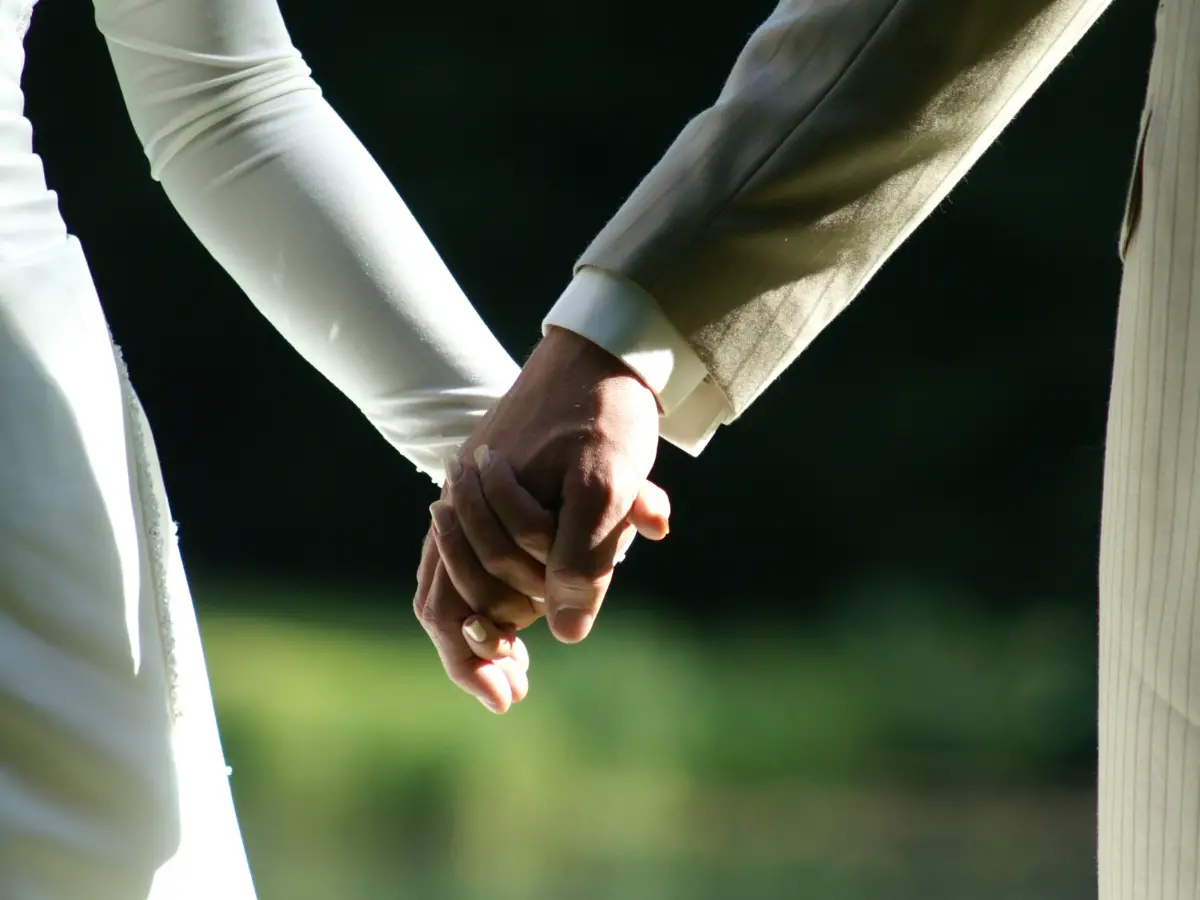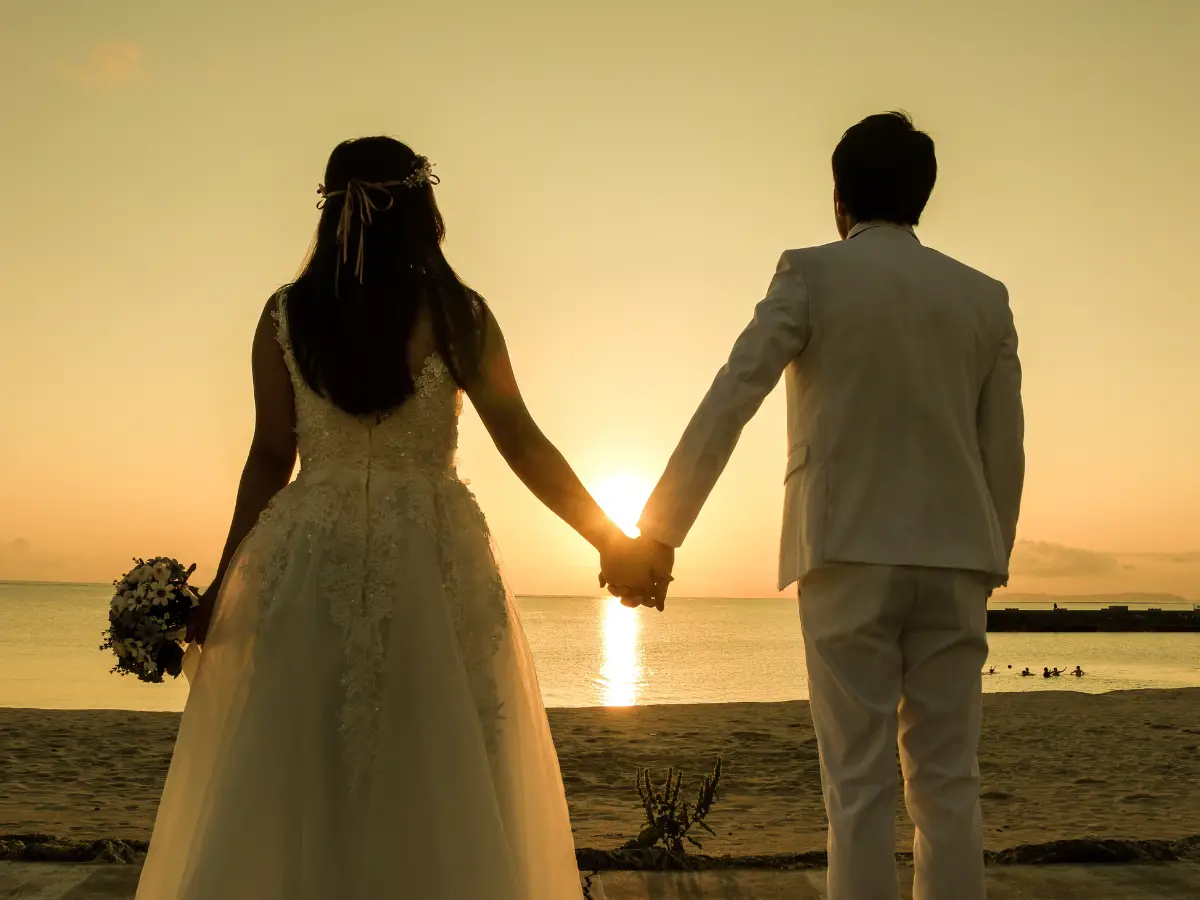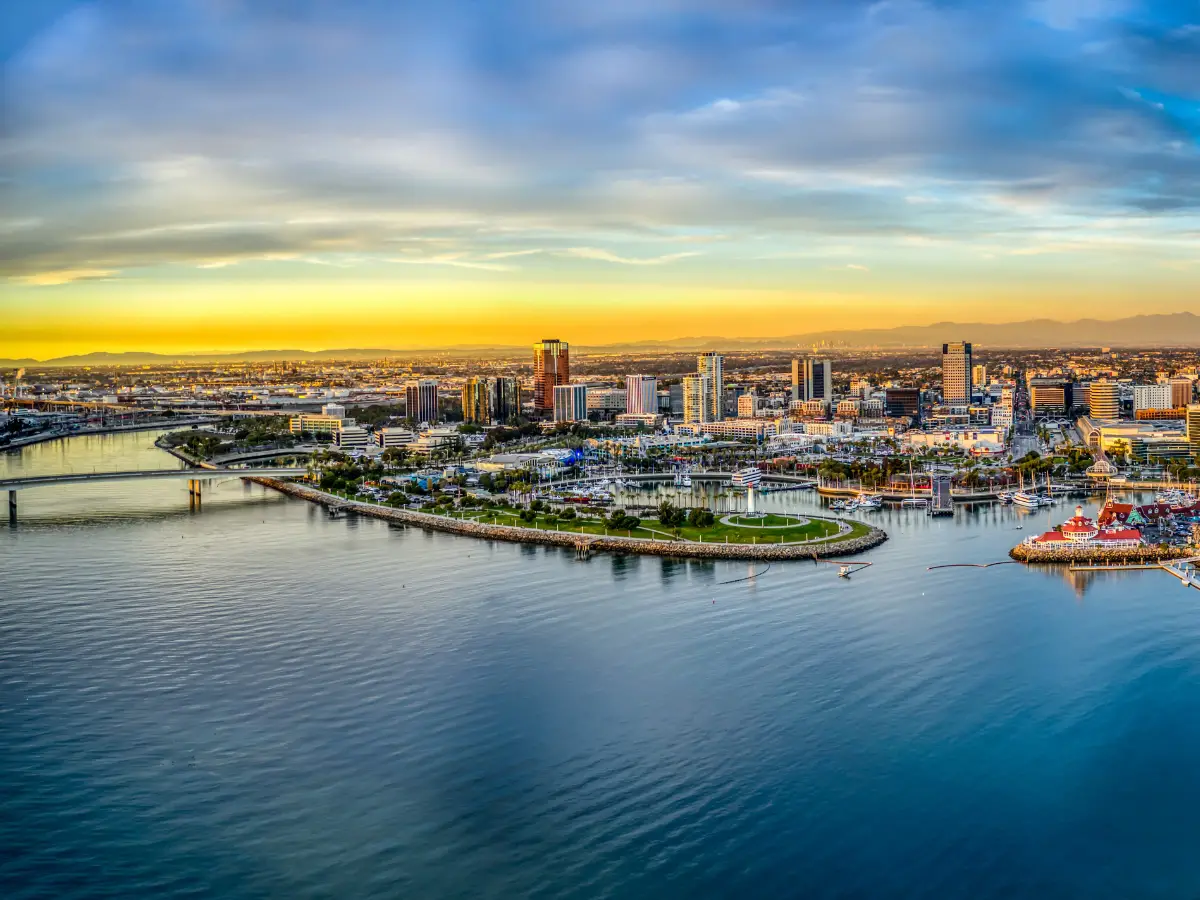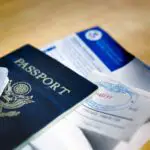Getting married is a significant milestone in many people’s lives. If you plan to get married in California, it’s essential to know what you need to do to make that happen. Fortunately, getting married in California is relatively straightforward, and this article will outline the requirements you need to fulfill.
First and foremost, you and your partner must not be currently married to anyone else. California law prohibits marriage between individuals who are already married, even if separated from their spouse. Additionally, both parties must be at least 18 years old to get married without parental consent or a court order. If you’re under 18, you’ll need to obtain both before legally tying the knot.
To get married in California, you’ll need to obtain a marriage license. The cost of a marriage license ranges from $35 to $111, depending on whether you want your information to remain confidential. Once you have your license, you’ll have 90 days to use it before it expires. It’s important to note that California does not allow marriage by proxy, which means both parties must be present to obtain the license.

Understanding California Marriage Laws
Getting married is a big step in anyone’s life, and it’s important to understand the laws and regulations surrounding marriage in California. In this section, we’ll provide an overview of the key points you need to know before tying the knot in the Golden State.
Age Requirements
In California, there is no minimum age to get married, but minors under the age of 18 must obtain both parental consent and a court order before they can legally marry. It’s important to note that even if a minor has parental consent, they may still be denied a marriage license if the court determines that it is not in their best interest.
Residency Requirements
You do not need to be a California resident to get married in the state. Individuals from out of state or out of the country may legally wed within California’s borders. This makes California a popular destination for destination weddings.
Marriage License
Before getting married in California, you’ll need to obtain a marriage license. Both parties must appear in person at the county clerk’s office to apply for the license. You’ll need to provide identification, such as a driver’s license or passport, and pay a fee. Blood tests are not required to obtain a marriage license in California.
Marriage Ceremony
To be legally married in California, the two parties, marriage officiant, and witness (if applicable) must be physically present together in the same location for the marriage ceremony. Marriage by proxy is not allowed in California.
Divorce and Annulment
If you’re considering getting married in California, it’s important to understand the state’s divorce and annulment laws. California is a no-fault divorce state, which means that either party can file for divorce without having to prove that the other party was at fault. In addition, annulment is an option for couples who want to have their marriage declared null and void. An experienced California family law attorney can provide more information on these topics.
By understanding California’s marriage laws, you can ensure that your marriage is legally valid and avoid any potential legal issues down the road.

Types of Marriage Licenses in California
If you are planning to get married in California, you will need to obtain a marriage license. There are two types of marriage licenses that are commonly issued in California: the public marriage license and the confidential marriage license.
Public Marriage License
A public marriage license is a document that is available to the general public. It is issued by the County Clerk’s office and can be used anywhere within the state of California. To obtain a public marriage license, both parties must appear in person at the County Clerk’s office and provide valid photo identification. The fee for a public marriage license in California ranges from $46 to $112, depending on the county.
Confidential Marriage License
A confidential marriage license is a document that is not available to the general public. It is issued by the County Clerk’s office and can only be used within the state of California. To obtain a confidential marriage license, both parties must appear in person at the County Clerk’s office and sign an affidavit stating that they have been living together as spouses. The fee for a confidential marriage license in California ranges from $66 to $130, depending on the county.
It is important to note that there are additional requirements for each type of marriage license. For example, both parties must be at least 18 years old to obtain a marriage license in California. Additionally, marriage by proxy is not allowed in California.
Once you have obtained your marriage license, you will need to have a ceremony performed by a person who is authorized to perform marriages in California. The marriage officiant is required by law to complete the marriage license and return it to the County Recorder’s office within 10 days of the event for registration.
In summary, obtaining a marriage license in California requires careful consideration of the type of license you need and the requirements for each. Whether you opt for a public or confidential marriage license, be sure to follow all necessary steps to ensure that your marriage is legally recognized in the state of California.

Application Process for a Marriage License
If you are planning to get married in California, you will need to obtain a marriage license. The application process is straightforward, but there are some important steps you need to follow. Here is what you need to know:
Appointment and Application
To apply for a marriage license in California, both parties must appear in person at the county clerk’s office. You will need to make an appointment beforehand, as walk-ins are not accepted. You can schedule an appointment online or by phone, depending on the county where you plan to get married.
When you arrive for your appointment, you will need to fill out an application form. The form will ask for basic information about you and your partner, such as your names, addresses, and dates of birth. You will also need to provide your social security numbers, although you can opt out of this requirement if you prefer.
Required Documents
In addition to the application form, you will need to bring some documents with you to the county clerk’s office. Here is what you will need:
- Valid photo identification: You and your partner must bring a valid picture identification, such as a driver’s license, passport, or military ID.
- Proof of age: You will need to provide a certified copy of your birth certificate to prove that you are at least 18 years old. If you are under 18, you will need to obtain a court order granting you permission to marry.
- Proof of divorce: If you or your partner has been divorced within the past 90 days, you will need to provide a copy of the divorce decree.
- Previous marriage information: If you or your partner has been married before, you will need to provide the date and place of the previous marriage, as well as the date and manner in which the marriage ended.
Once you have submitted your application and provided all of the required documents, you will be issued a marriage license. The license is valid for 90 days from the date of issuance, so make sure to plan your wedding accordingly.
Age and Consent Requirements
Getting married in California requires meeting certain age and consent requirements. Here are the details:
Age Requirement and Parental Consent
In California, the minimum age to get married is 18 years old. However, minors who are 16 or 17 years old can get married with the written consent of both parents or legal guardians. If only one parent or legal guardian is available, a court order is required.
It’s important to note that California is one of the few states that does not have a minimum age for marriage. However, minors under the age of 18 cannot get married without parental consent or court approval.
Court Approval for Underage Marriage
If a minor wants to get married in California and does not have parental consent, they can seek court approval. The minor must file a petition in the county where they live and attend a court hearing. The court will evaluate whether the marriage is in the minor’s best interest and may require counseling or other conditions before granting approval.
It’s also worth noting that marriage by proxy is not allowed in California. Both parties must be present during the ceremony.
In summary, the age and consent requirements for getting married in California are straightforward. Minors under 18 can get married with parental consent or court approval, and there is no minimum age for marriage. However, it’s important to carefully consider the decision to get married and seek legal advice if needed.
Marriage Ceremony Essentials
Getting married in California requires a bit of preparation and planning. Here are some essential things to keep in mind when planning your marriage ceremony.
Choosing an Officiant
An officiant is a person who performs the wedding ceremony and legally binds the couple in marriage. In California, the following individuals can officiate a wedding ceremony:
- Priest, minister, or rabbi of any religious denomination
- Commissioner of Civil Marriages
- Legislator or constitutional officer of California
- Judge or retired judge
It’s important to choose an officiant who is authorized to perform a wedding ceremony in California. You should also consider their availability, fees, and whether they align with your beliefs and values.
Witness Requirement
In California, you need at least one witness to sign the marriage license. The witness must be at least 18 years old and present during the ceremony. The witness can be a family member, friend, or anyone else you trust.
It’s a good idea to inform your witness ahead of time and make sure they are available on the day of the ceremony. You should also provide them with the necessary information, such as the date, time, and location of the ceremony.
Remember, the witness plays a crucial role in making your marriage legal, so choose someone who is responsible and reliable.
In summary, choosing an officiant and having a witness are two essential components of a marriage ceremony in California. Make sure to choose an authorized officiant and inform your witness ahead of time. With these things in place, you can focus on enjoying your special day with your loved ones.
Post-Marriage Formalities
After you’ve tied the knot in California, there are a few post-marriage formalities that you need to take care of. This section will cover two main sub-sections: obtaining a marriage certificate and changing your name.
Obtaining a Marriage Certificate
Once you’re married in California, you’ll need to obtain a marriage certificate. This document serves as proof of your marriage and is required for many legal purposes, such as changing your name, applying for joint loans, and updating your insurance policies.
To obtain a marriage certificate, you’ll need to contact the county recorder’s office where you obtained your marriage license. You can either visit the office in person or request a certified copy by mail. The cost of a certified copy varies by county but typically ranges from $15 to $25.
Changing Your Name
If you’ve decided to change your name after getting married, there are a few steps you need to take. First, you’ll need to update your name with the Social Security Administration. You can do this by completing an application for a new Social Security card and submitting it, along with your marriage certificate, to your local Social Security office.
Once you’ve updated your name with the Social Security Administration, you can then update your name on your driver’s license or state ID. You’ll need to visit your local DMV office and bring your updated Social Security card, your marriage certificate, and your current driver’s license or ID.
Finally, you’ll need to update your name with any other entities that require it, such as your bank, credit card companies, and employer. You may need to provide a copy of your marriage certificate as proof of your name change.
In conclusion, obtaining a marriage certificate and changing your name are important post-marriage formalities that you need to take care of. By following the steps outlined above, you can ensure that your legal documents and records reflect your new marital status and name.
Special Cases in California Marriage
Proxy Marriages
In California, marriage by proxy is not allowed. This means that both parties must be physically present during the marriage ceremony. A proxy marriage is a marriage where one or both parties are not physically present during the ceremony, but instead, they are represented by someone else.
Marriages for Armed Forces Members
If you or your partner are in the armed forces, you can get married in California even if you are not a resident of the state. You can also get married by proxy if one of you is on active duty and unable to attend the ceremony. However, it is important to note that some military installations may have their own marriage rules and regulations that you must follow.
Marriages for Non-Residents
If you or your partner are not residents of California, you can still get married in the state. However, you must obtain a marriage license from a California county clerk’s office and follow the same marriage laws and regulations as California residents. It is important to note that there is no residency requirement to get married in California.
It is also worth noting that a power of attorney or an attorney-in-fact cannot be used to get married in California. Both parties must be present during the marriage ceremony and must exchange vows in order to be legally married.
The California Department of Public Health provides further information on the requirements for getting married in California, including the necessary documentation, fees, and waiting periods.
Frequently Asked Questions
What is the process to obtain a marriage license in California?
To obtain a marriage license in California, both parties must appear in person at a County Clerk-Recorder’s office and provide valid identification, such as a driver’s license, passport, or military ID. The couple must also provide their social security numbers and sign a statement indicating that they are unmarried and not related by blood. After paying the fee, the marriage license will be issued immediately.
How long does it take to get a marriage license in California?
The process of obtaining a marriage license in California is usually quick and can be completed in one visit to the County Clerk-Recorder’s office. However, it is recommended to check with the specific office beforehand to confirm their hours of operation and any potential wait times.
What is a confidential marriage license and how do I obtain one?
A confidential marriage license is a type of license that is only available to couples who are already living together and do not want their marriage to be a matter of public record. To obtain a confidential marriage license in California, both parties must appear in person at a County Clerk-Recorder’s office and provide valid identification, such as a driver’s license, passport, or military ID. The couple must also sign a statement indicating that they are living together and not related by blood. After paying the fee, the confidential marriage license will be issued immediately.
Do I need a witness to get married in California?
Yes, you need at least one witness to be present at your wedding ceremony in California. The witness must be at least 18 years old and understand the nature of the ceremony they are witnessing.
Can I get married the same day I obtain my marriage license in California?
Yes, you can get married the same day you obtain your marriage license in California. However, it is important to note that some County Clerk-Recorder’s offices may require an appointment for a civil ceremony, while others may offer walk-in services.
How much does it cost to obtain a marriage license in California?
The cost of obtaining a marriage license in California varies by county, but generally ranges from $46 to $112. It is recommended to check with the specific County Clerk-Recorder’s office beforehand to confirm their fees and accepted forms of payment.





